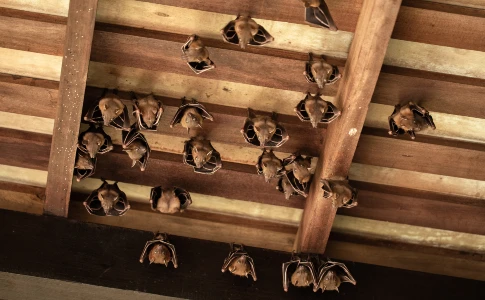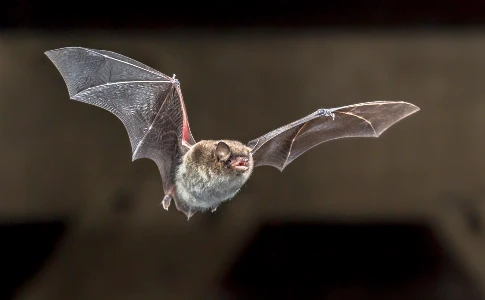Bat Removal
Acworth, Ga

Bat Management & Entry Denial Solutions
Specializing in comprehensive bat-related issues in Acworth, Dixie Exterminators offers a dual approach, combining bat displacement with prevention methods. Our wildlife professionals are adept at implementing exclusion techniques to identify and seal common bat entry points like roof openings and vents. Moreover, we manage the clean-up and replacement of insulation, which often becomes contaminated with bat droppings or guano.
Bat-Related Problems in Acworth, Georgia
The primary challenge with bats in Acworth stems from their colonizing habits. Large bat colonies not only create auditory and visual discomfort during twilight hours, but they also present hygiene issues due to their excretions. Over time, these accumulations of droppings give off foul smells and cultivate harmful fungal spores. Inhalation of these spores can lead to Histoplasmosis, a severe lung disease. If you're confronting a bat infestation in Acworth, we offer comprehensive solutions that include bat displacement, containment, and subsequent clean-up.
An Introduction to Bats
Bats, grouped under the order Chiroptera, hold the unique distinction of being the only mammals capable of true, sustained flight, thanks to their wing-adapted webbed forelimbs. The world hosts approximately 1,100 species of bats, accounting for nearly 20% of all documented mammal species. About 70% of bats are insectivores, with the remainder primarily being fruit eaters or frugivores, while a small percentage feed on other animals. Bats inhabit various parts of the world, serving essential ecological functions, including flower pollination and fruit seed dispersion. In fact, numerous tropical plant species rely exclusively on bats for seed distribution.

Bat Reproduction Cycle
Typically, bats living in temperate climates breed during spring. Depending on species-specific traits and environmental factors, such as food and shelter availability, bats may produce one to three litters each season. Being primarily nocturnal, bats use their daytime hours for sleeping, grooming, and resting, and engage in hunting during the night. Bats mainly feed on insects, fruits, and flower nectar, with some species consuming vertebrates and blood. Almost three-fourths of all bat species are insect eaters. Each bat can typically consume insects equal to one-third of its body weight in a night, equating to several hundreds of insects in a few hours. As a result, a colony of a thousand bats can consume up to four tons of insects annually.
Reach Out for Bat Management Services in Acworth
If bats have become unwanted guests in your home, we are ready to assist you. Contact us today for reliable bat management services!
770.424.1300